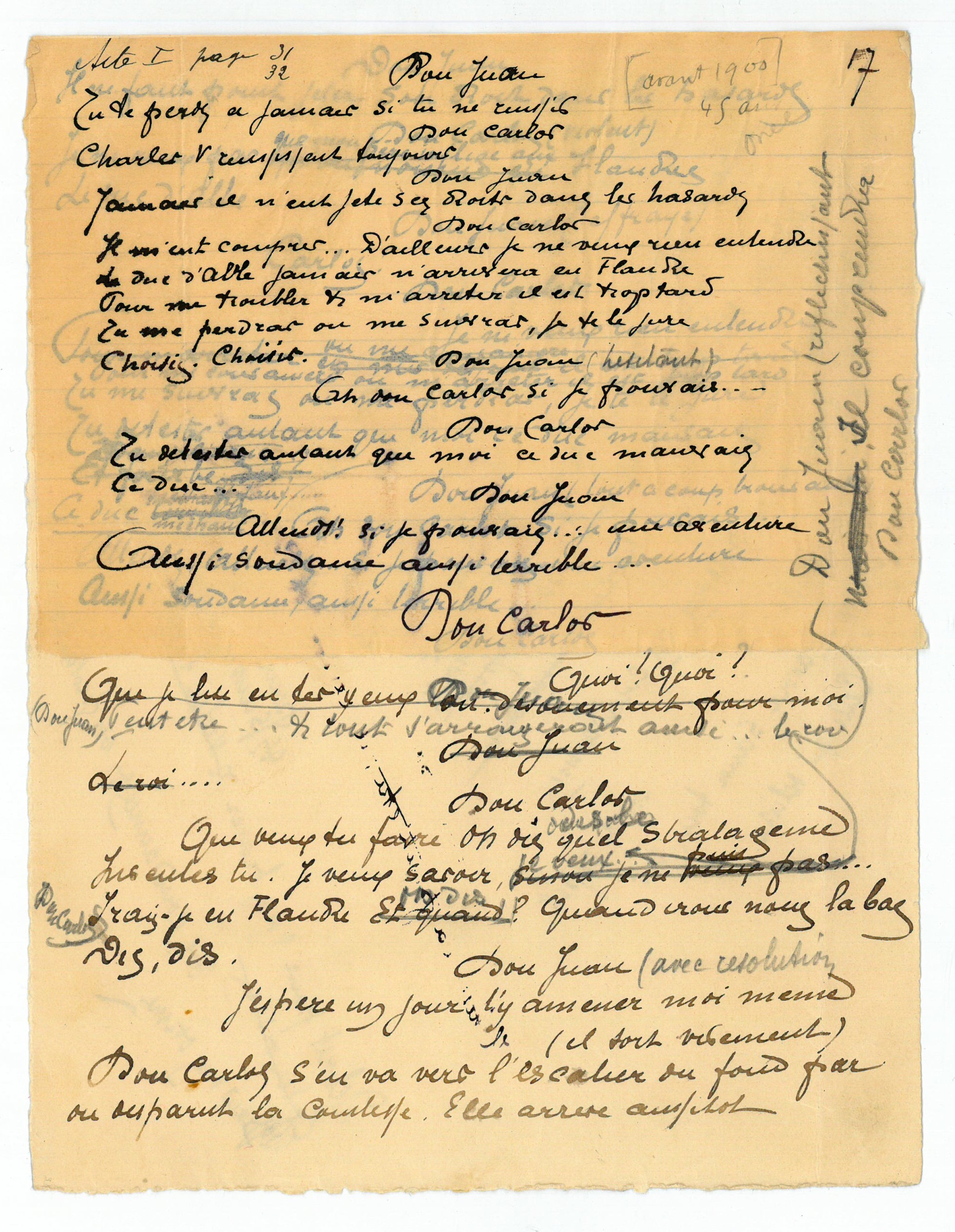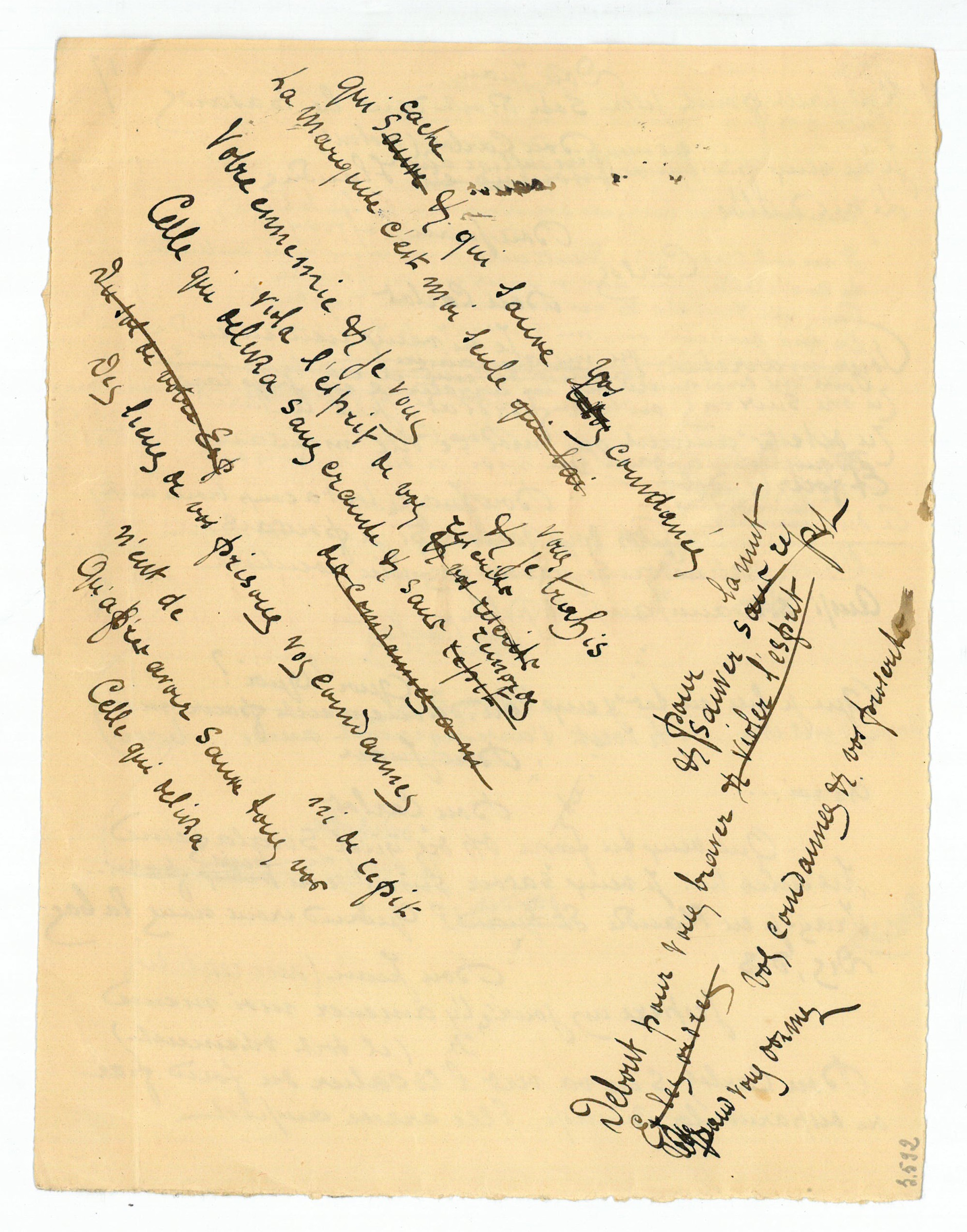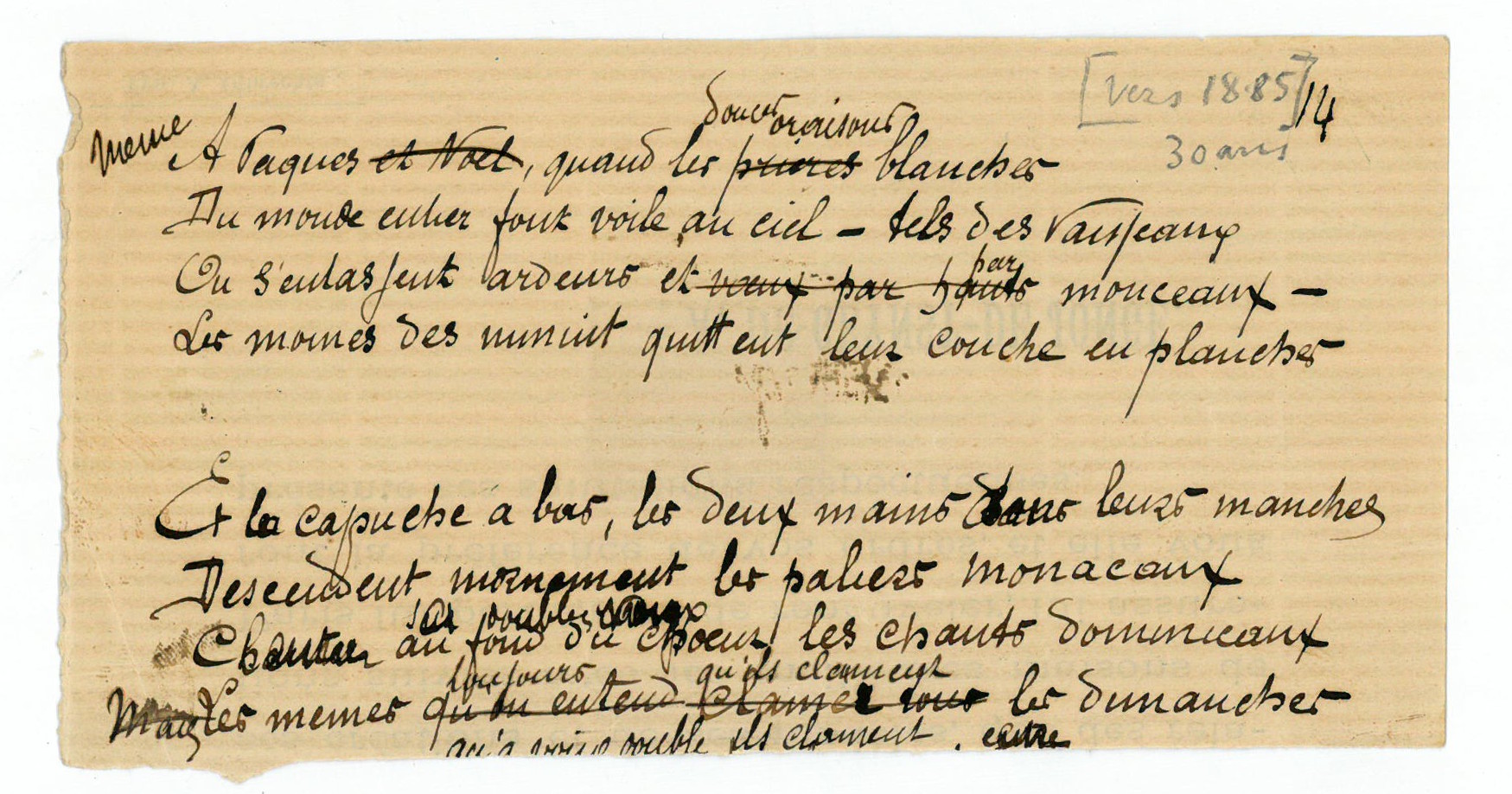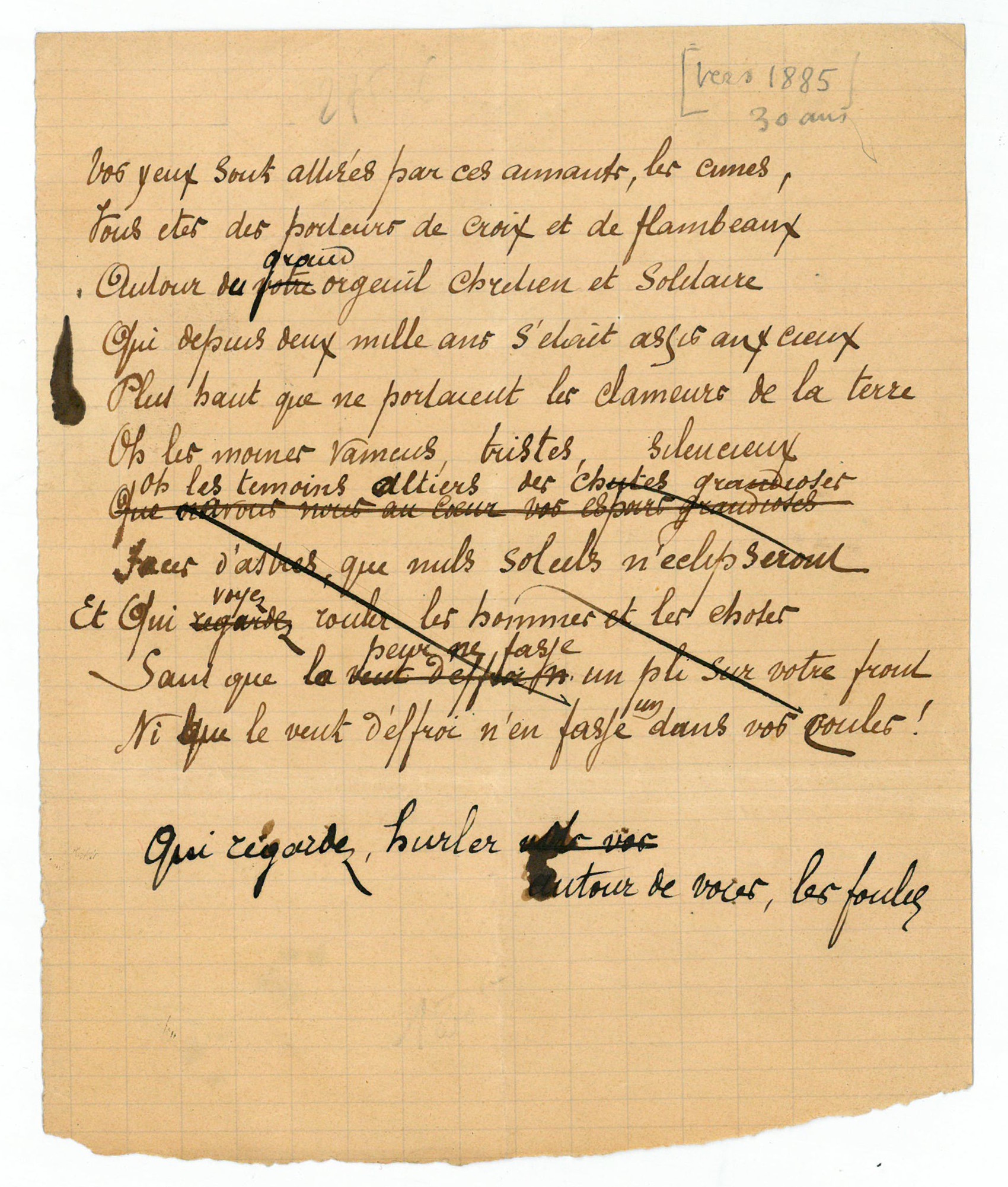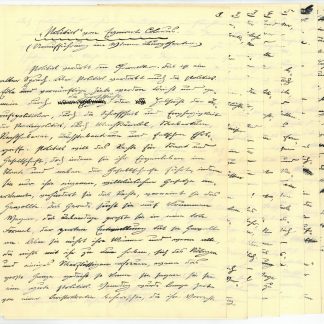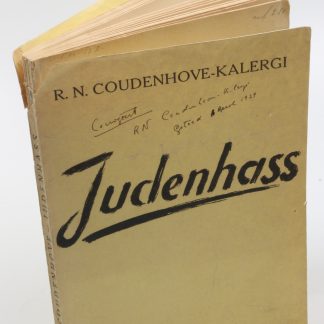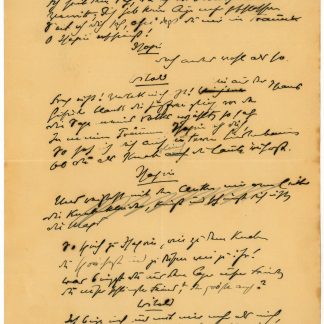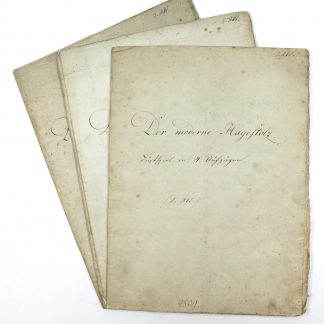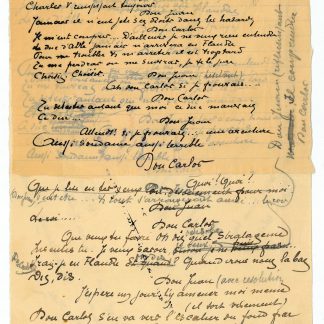Autograph manuscript fragments for "Philippe II" and "Les Moines".
8vo and oblong 12mo. French manuscript on paper. Altogether 4 pp.
€ 8.500,00
Exceedingly rare and highly interesting manuscript pages related to two different publications. The two earlier fragments are stylistically and thematically connected to the 1886 anthology "Les Moines" but not identical with any of the 35 poems, thus constituting unpublished sketches for at least two different poems.
In the longer fragment Verhaeren beautifully contrasts the central role of monasticism in the history of Christianity with the reclusiveness and silence of the monks: "Vos yeux sont altérés par ces amants, les cimes, | Vous étés des porteurs de croix et de flambeaux | Autour du grand orgueil chrétien et solitaire | Qui depuis deux mille ans s'était assez aux cieux | Plus haut que ne portaient les clameurs de la terre | Oh les moines rameus [!], tristes, silencieux [...]". The shorter fragment evokes the monks' spirituality and their duties surrounding Easter: "Même à Pâques, quand douces oraisons blanches | Du monde entier font voile au ciel - tels des vaisseaux | Où s'entassent ardeurs par monceaux - | Les moines des minuit quittent leur couche en planches".
The manuscript for the 1901 three-act tragedy "Philippe II", based on the Don Carlos character created by Schiller, seems to originate from a final draft, although some discrepancies remain. In the scene between Don Carlos and Don Juan from Act I, the prince tries to win over Don Juan d'Autriche for his plan to betray his father in forming an army supported by the French in order to free Flanders from the governorship of the Duke of Alba: "Il m’eût compris … d’ailleurs, je ne veux rien entendre | Le duc d’Albe jamais ne parviendra en Flandre | Pour me troubler et m’arrêter, il est trop tard | Tu me perdras ou me suivras, je te le jure | Choisis, choisis ! [...]".
The upper half of the page has been overpasted with thin paper; an earlier version is partly legible underneath. Several corrections and additions in pencil by Verhaeren's hand. The verso of the leaf was used for several sketches that correspond partly with the printed text, for example two lines spoken by the Comtesse in Act I: "Debout, pour vous braver et pour sauver, la nuit | Quand vous dormez, vos condamnés et vos proscrits."
Les Moines, poésies (Paris, A. Lemerre, 1886); Philippe II. Tragédie en 3 actes (Paris, Soc. du Mercure de France, 1901).

